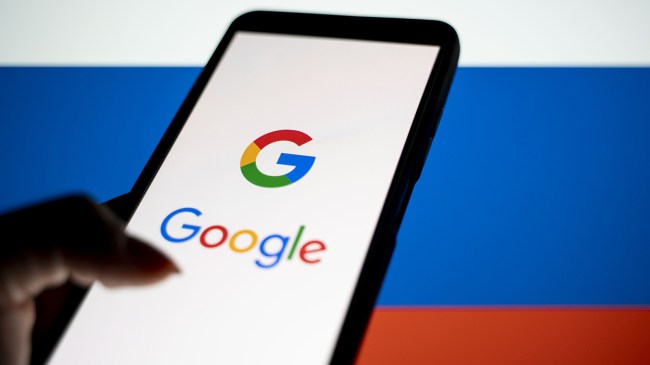Getty Image
Google has plenty of money at its disposal, but it’s theoretically facing a fine that could bankrupt it (and then some) after a court in Russia ordered it to pay a virtually unfathomable amount of money over a dispute linked to propaganda on YouTube.
As things currently stand, Alphabet (the parent company Google was folded into close to a decade ago) has a market cap of approximately $2.18 trillion dollars, which places it only behind Apple, NVIDIA, and Microsoft on the list of the most valuable companies on the planet.
Advertising linked to Google searches comprises the lion’s share of the more than $300 billion in revenue the company raked in over the course of 2023, but around 10% of that number stemmed from ads on YouTube—the video platform at the center of a legal dispute that’s been unfolding in Russia since 2020.
According to The Independent, a Russian court initially fined Google 100,000 rubles (around $1,000) that year for banning multiple channels accused of pumping out propaganda for the Kremlin while ordering the same amount to be added onto the original sanction for each day the ban wasn’t lifted going forward.
However, the company declined to fork over a sum that was compounded by two every week it wasn’t paid and continued to ignore more penalties that were instituted after it deplatformed even more accounts in the wake of Russia’s invasion of Ukraine (a grand total of 17 media outlets were banned).
Things took a wild turn earlier this week when a court ruled Google currently owes $2.5 decillion ($2,500,000,000,000,000,000,000,000,000,000,000) which is just a little bit higher than the global GDP of $100 trillion as well as the approximately $455 trillion in total wealth held by the 8.2 billion people that currently reside on the planet.
That virtually unfathomable number will only continue to grow going forward, but in the most recent Alphabet earnings report, the company essentially said it won’t be paying a single cent while minimizing potential concerns, noting “We do not believe these ongoing legal matters will have a material adverse effect.”

